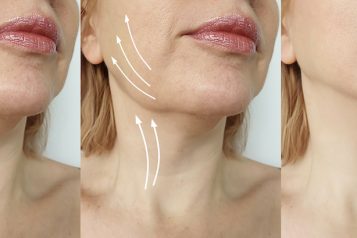Since 2013 Dr. Raheleh Sarbaziha, Dr. Rahi for short, has been reimagining the realms of integrative medicine and aesthetic beauty, bringing a unique perspective and approach. Armed with her qualifications from Ross University School of Medicine and the University of Toronto, Dr. Rahi ventured out to share her knowledge of the human body with the nation and world. With a fellowship in Integrative Medicine Dr. Rahi today specializes in helping her patients look and feel more confident.
 Photo Credit: Shutterstock
Photo Credit: Shutterstock
Consider the facts: most of the world’s population is under some form of stress right now. Standing between a collective standstill and a cultural revolution, no one person can predict whether we’ll ever go back to how things were, or if we even want to. It’s under these unprecedented times that our bodies are undergoing unprecedented stress. Stress can look like different reactions. And during a pandemic, our bodies’ normal responses to stress might look a bit different. From a doctor’s perspective, stress can cause the body to constantly live in fight-or-flight mode, meaning the sympathetic nervous system goes into overdrive. This response essentially short-circuits the brain, rendering the body tense, uncomfortable, and unable to perform daily vital functions with ease. And at times when the sympathetic nervous system has finally exhausted itself, we fall into a deep period of depression and fatigue. It’s a vicious cycle that many can relate to yet few have been able to fix.
What does stress look like from the outside? For one, it can lead to weight gain thanks to the dysregulation of your adrenal glands. Another physical manifestation of stress is premature aging through a variety of different hormonal imbalances. Calling stress “the silent killer” isn’t an exaggeration. Not only can it contribute to an increased risk of heart attack (which is one of the leading causes of death in both men and women in America), but it depletes your immune system, rendering it unable to adequately protect you from outside attacks from viruses and bacteria, leaving you susceptible to a host of even more problems.
.
Stress can come in many forms, and one form can always lead to the next, be it physical, or environmental. By identifying what stress looks like in your own body, then you can take the first steps to thwart its negative effects and being prepared for any type of stressful situation. Learn the tools today so you can be prepared tomorrow!
 Photo Credit: Shutterstock
Photo Credit: Shutterstock
Simple tools to both identify and fight stress:
- When things get out of hand, try to bring your focus to your breath, even just for a few minutes. An easy way to do this by simply counting your breath for 1 minute. Then move to 5 minutes, then 10. Slowly, you can build up your practice and discover other forms of breathwork that are more advanced. This is often the saving grace for people under any sort of strain, especially in moments of high-stress.
- Animal therapy is a powerful tool and one that I am a strong proponent of. I believe that humans need more animal interaction, always. If adopting a dog or cat isn’t in your abilities, then find some friends with pets and ask to spend more time with them, or reach out to your local shelter and see if you can help walk the dogs. This is a great way to both volunteer your time and alleviates pressure—a win-win scenario!
- More time spent outdoors. Take a picnic, walk in the park, go hiking with a friend. Do anything that gets your body moving outside. It provides a much-needed perspective and
natural wonder. Trust me. - This is one not too many people know about: make sure you get enough B vitamins. Checking levels of all the B vitamins are important to assess deficiencies and see where you should be focused on supplementing. By ensuring you are getting the right amount of vitamin B, you’re facilitating overall brain health which is vital to stress reduction. Do more research on the importance of B vitamins and check with your doctor to check your levels.
- Let it go. Sure, easier said than done, but once you learn to not sweat the small stuff, or even let go of a longtime grudge or issue, you’ll unlock the priceless key to living an anxiety-free life. A calm brain is a calm life. The next time you find yourself dwelling or fuming over a situation out of your control, try repeating this mantra: the things that are in the past should remain in the past. Then count your breath, and see if that doesn’t help your mood.
- Listen to more Mozart. Studies show that Mozart can help heal and sharpen the brain. The different range of frequencies helps mobilize the brain into focus and reason. Music heals, after all. I like to listen to Mozart at least once a week, even if I don’t consider myself stressed. It’s part of my mental health regimen. Find your checklist, commit to it daily or weekly, and I promise you’ll find some of the secrets to living a stress-free and happier lifestyle.
For more information, visit Dr. Raheleh Sarbaziha's social media:






















